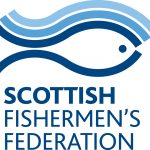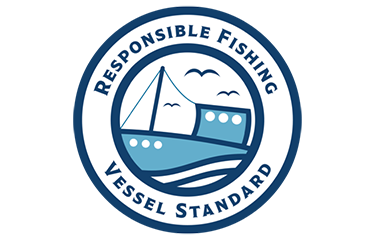Developed by the Global Aquaculture Alliance (GAA) in April 2018, the not-for-profit GSA has set out to offer supply chain assurance for seafood. Seafish, a public body that supports the GBP 10 billion (USD, EUR) U.K. seafood industry, said RSVS “was revised to reflect the seafood industry’s needs as part of a groundbreaking global supply chain assurance initiative.”
The RSVS, the next iteration of Seafish’s Responsible Fishing Scheme (RFS), is a voluntary, vessel-based certification standard.
The RSVS “enables commercial fishing operations to provide assurance of decent working conditions and operational best practice through independent, third-party auditing,” Seafish said in a press release.
Two core principles comprise the revised standard: vessel management and safety systems; and crew rights, safety, and well-being. The strong emphasis RSVS places on crew welfare aboard fishing vessels is underpinned by Work in Fishing Convention ILOc188 and other global conventions, Seafish and GSA noted.
“It is now recognized that assurance of good crew welfare on fishing vessels is critically important and inseparable from good environmental management,” GSA Europe and Board Director Melanie Siggs said. “It has been a really exciting two years working with Seafish to evolve the RFS into the new, globally-applicable Responsible Fishing Vessel Standard. Assurance of crew welfare on fishing vessels has been missing in seafood supply chain assurance, and the RFVS enables us to fill this assurance gap. Through RFVS certification, we can celebrate those working to best practice and also help drive improvement.”
Seafish Director of Operations Aoife Martin said the release of RFVS marks a pivotal moment for fishing certification.
“We are delighted to mark the release of the RFVS, the culmination of a two-year collaborative development process and a significant milestone in the certification of fishing best practice. This release also coincides with Seafish formally transferring ownership of the standard to GSA, a move that will enable the RFVS to reach its potential as a global assurance model for fishing vessels,” Martin said. “I would like to thank the RFS Oversight Board members for their guidance and strategic direction since the RFS was first established in 2016, but particularly for its support during the RFVS development process. Seafish would also like to thank the technical working group members and existing members of the UK RFS who have contributed time and expertise to test the new Standard to make sure it continues to meet the needs of the seafood supply chain.”
A robust standard development process was used to develop the RFVS, which included input from all facets of the global seafood industry, from catching, processing, and retail to standard holder and non-governmental organizations. A fully transparent engagement process, overseen by an independent oversight board and supported by technical working groups comprising of over 30 international seafood stakeholders, was launched in July 2018 and included two open consultation phases, Seafish and GSA said.
The proposed standard was tested on vessels around the world in 2018, including in waters off of Russia, Peru, the Faroe Islands, and the U.K. Over the course of the next few months, Seafish and GSA said a set of vessel certification pilots will be carried out “in order to refine the proposed RFVS Certification Model.” The first auditors for RFVS have received training, with a full auditor training program currently in development as well, according to Seafish’s press release.
“The RFVS will open for applications once the vessel certification pilots have been completed,” the press release said.
You can download the RSVS here:
Full story courtesy of Madeline Kearns at SeafoodSource.com












